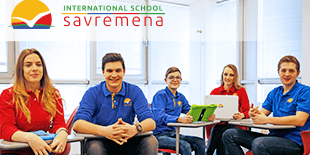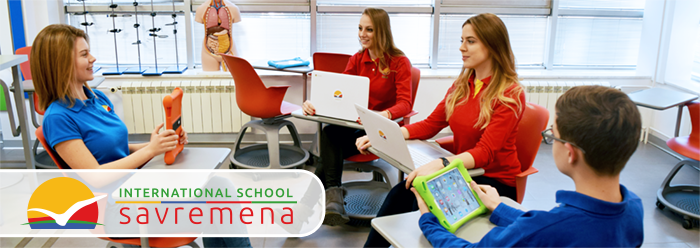The competencies that students need today in order to successfully enter the world of further education and employment include much more than simply learning loads of facts. The education we receive at school is supposed to serve as a foundation for lifelong learning, which can only be achieved if students are actively included in the knowledge acquisition process, especially in constructing knowledge and assuming responsibility for their learning.
The more active students are while learning, the larger the invested cognitive effort and the higher the probability of knowledge retention.
Cooperative learning is a standard method implemented in teaching because it is efficient and based on the idea that working in teams and groups is the key to success which is why the development of cooperation skills is considered an essential part of building a successful person. The theoretical basis of cooperative learning can be found in social psychology and the theory of young groups which state that individuals solve different issues together, in groups more successfully.
Cooperative learning is an instructive technique in which students work together in a group that is organised in a way to encourage positive interactions. So, in a group, different processes occur which encourage the individual to succeed – by developing their cooperative side, joint motives for successful problem resolution and friendly relations based on mutual trust and support.
Cooperation also influences communication as well as the production of ideas that lead to problem resolution. In this group, students assume responsibility for their learning and contribute to the group effort, as they strive to achieve a common goal and depend on their team along the way.
Thus, the main characteristics of cooperative learning include:
- Work that is conducted with the aim of knowledge acquisition,
- Encouraging a positive sense of interdependence,
- Developing a sense of personal and individual responsibility,
- Striving to create a positive atmosphere in the group,
- Encouraging group work with regard to personal and individual orientation.
Group teaching, as a form of teaching, connects learning with the adaptation of a specific form of behaviour. This method has many advantages compared to competitive or individual learning, both in terms of actual knowledge retention and social skills development among students.
Advantages of the group teaching
Some of the advantages include a higher level of efficiency, motivation, self-confidence, intensive social learning, preparation for the world of employment, the acquisition of key competencies, as well as the encouragement and development of the skills needed for a democracy. Group work can be implemented in all the phases of teaching, from the preparation phase, the actual topic presentation and all the way to the revision and evaluation phase.
When we organise group work, we should make sure that all students and group members truly bare responsibility for the group’s work because oftentimes some students can disengage in the activity and leave it off to their teammates. When we organise group work, the role of the teacher preparing and conducting the lesson changes.
Instead of having a central role, the teacher leads the process and becomes the helper and moderator of the process. In order for group work to be successful, students should develop certain social skills like: communication, leadership, conflict management and assertive behaviour skills as well as the ability to take responsibility and trust others.
In what ways can we encourage cooperation in group work?
- By forming good groups. When forming groups, make sure to factor in the abilities and gender of the students.
- By formulating the task well. A task that is not formulated well does away with all the advantages of group work – cooperation, and forms pseudogroups in which a student can work on their own and not depend on their peers.
- By giving correct instructions to students in terms of what is expected of them in certain phases of cooperation, what their role is and what their tasks and responsibilities are.
- By giving students feedback on their accomplishments, both on a group and individual level.
- By organising discussions about which activities of the group members especially contributed to their success and how they can be implemented further on, and which activities hindered the process of student cooperation and how they can be changed.
Group work has its own rules which are especially important when they involve students. The rules enable the efficient functioning of the group, good interpersonal cooperation, and teachers can help students when they need assistance.
Here are some rules of group work for students. You should explain to them that:
- They are responsible for their own work and for the group’s work;
- If something is bothering them, they should say it openly and clearly in a way that other group members can understand and they should also listen when one of the members of their group wishes to say something;
- They should select a leader for the group who will be in charge of negotiations with the teacher and other groups;
- If a conflict occurs, they will try to resolve it on their own, and include you as the teacher only when all other possibilities are exhausted;
- It is necessary to make sure the task is completed on time. Should any unforeseen circumstances occur preventing them from completing the task on time, the students should consult you about it;
- They should prepare and present the results of their work to other groups and the teacher.
Author: Tijana Rajić
Literature:
- Lukša, Ž. (2006). Akademska postignuća učenika i zadovoljstvo grupnim radom u nastavi biologije. Magistarski rad. Split: Fakultet prirodoslovno-matematičkih znanosti i odgojnih područja.





